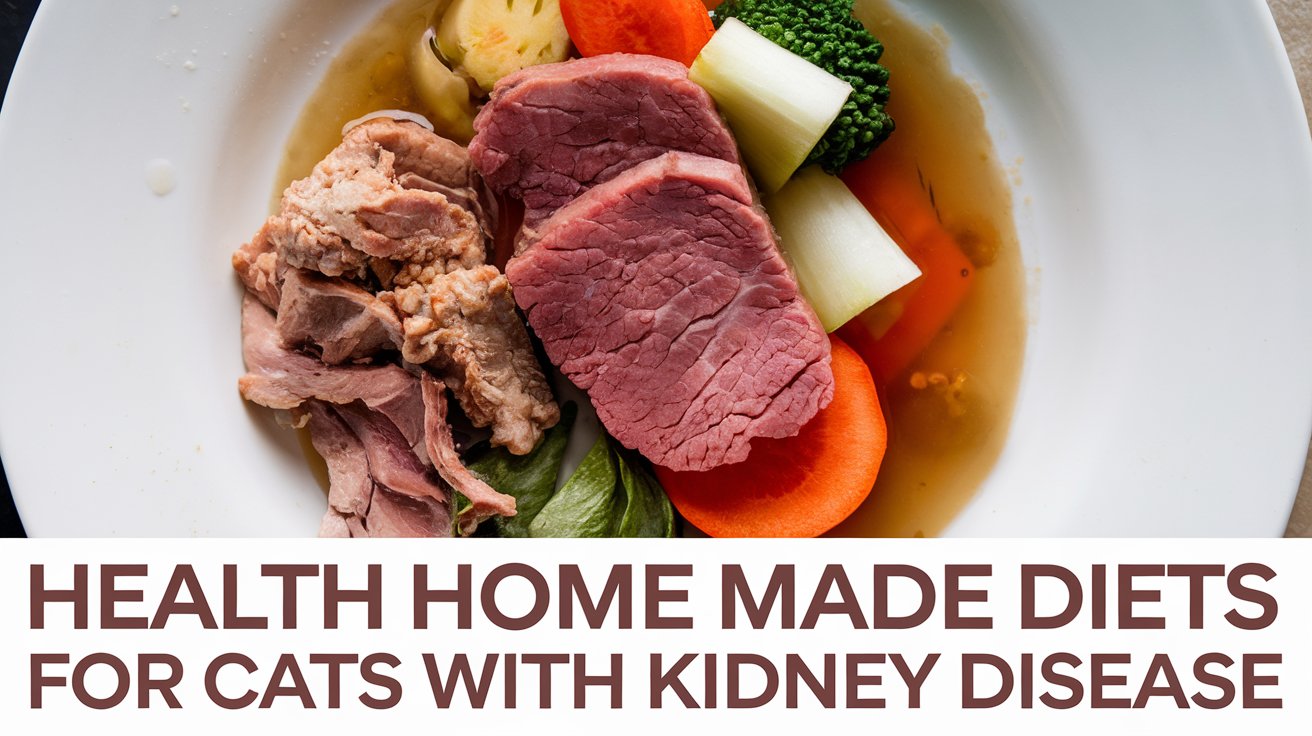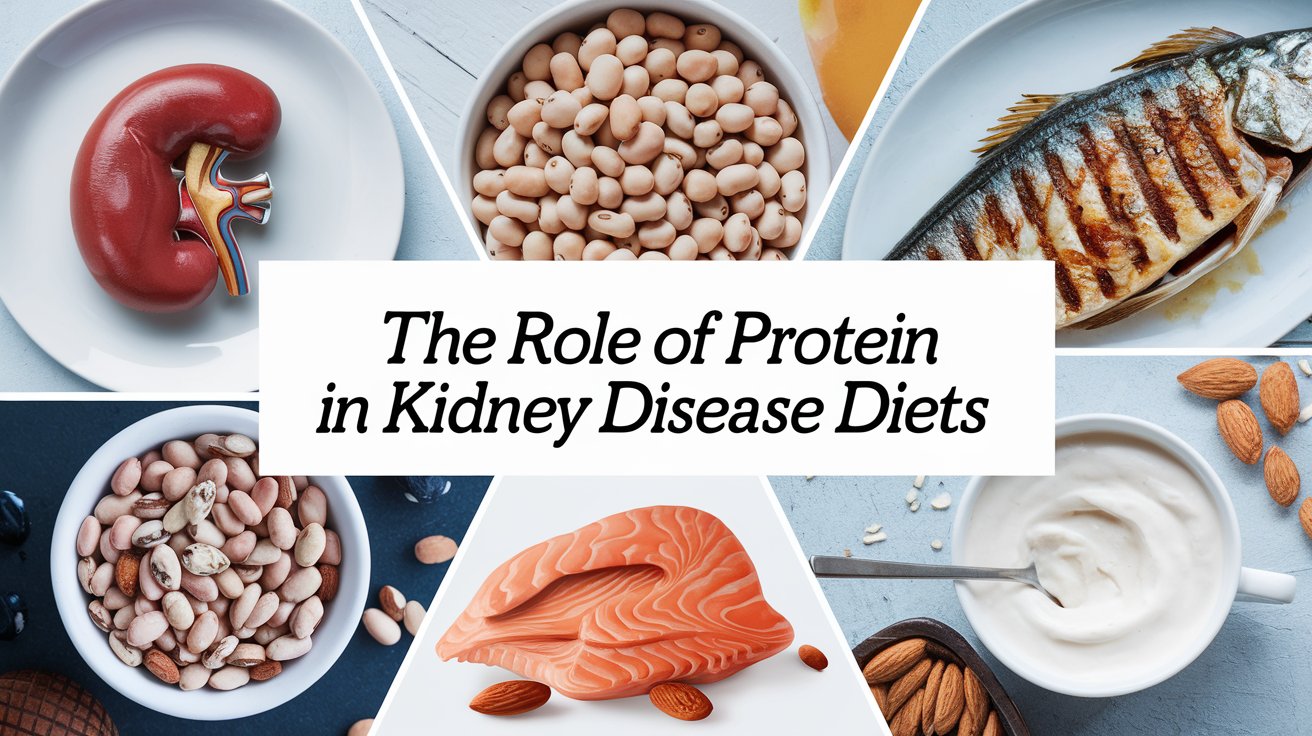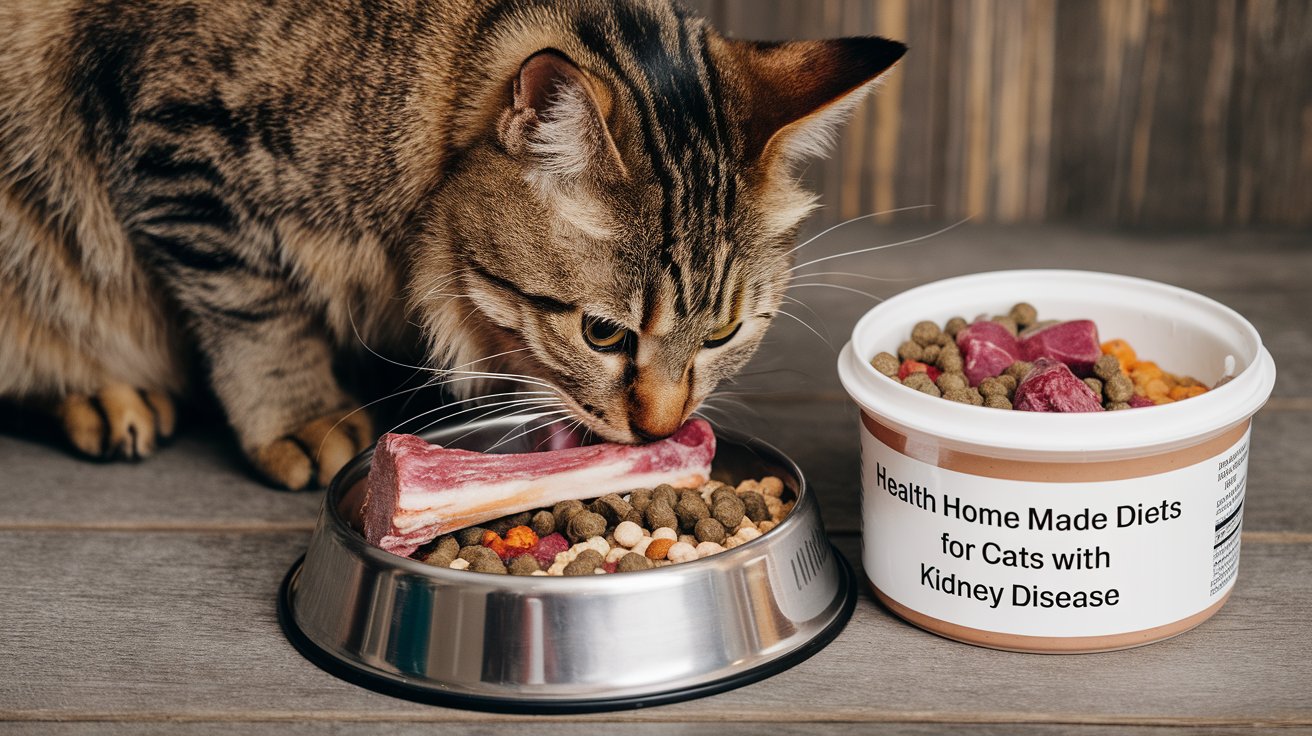
Health home-made diets for cats with kidney disease
Managing kidney disease often requires significant lifestyle changes, including adjustments to diet. While commercial renal diets are available, many pet owners are turning to healthy homemade diets for cats with kidney disease. These homemade meals provide the flexibility to control ingredients, tailoring the nutrition to the specific needs of the feline patient.
A well-crafted homemade diet can slow the progression of kidney disease, improve quality of life, and offer a variety of health benefits. However, creating such diets requires an understanding of the nutritional needs of cats with compromised kidney function.
Health Home Made Diets for Cats with Kidney Disease
Crafting healthy homemade diets for cats with kidney disease is not only about feeding them a balanced meal but also providing food that supports kidney function. These diets must be low in phosphorus, moderate in protein, and high in moisture, as these factors play a significant role in managing CKD. Cats with kidney disease often have unique dietary requirements that are different from healthy cats, and ensuring that their diet meets these needs can help mitigate the progression of the disease.
The goal of a homemade diet for a cat with kidney disease is to relieve the kidneys’ workload while providing essential nutrients.
Nutritional Needs of Cats with Kidney Disease
When preparing homemade meals for a cat with kidney disease, understanding their specific nutritional needs is crucial. Cats are obligate carnivores, which means their diet must consist primarily of meat. However, for cats with CKD, the amount and type of protein in their diet need to be carefully monitored. Additionally, ensuring that the diet includes sufficient moisture and is low in phosphorus is vital.
Key nutrients for kidney health include:
- High-quality protein: Helps maintain muscle mass without overburdening the kidneys.
- Low phosphorus: Slows down the progression of kidney disease by reducing kidney workload.
- Omega-3 fatty acids: Have anti-inflammatory properties that may protect the kidneys.
- Hydration: Ensures the kidneys are flushing out toxins properly.

The Role of Protein in Kidney Disease Diets
One of the most debated aspects of diets for cats with kidney disease is protein intake. While cats require protein to thrive, excessive protein can accelerate kidney damage in cats with CKD. A careful balance must be struck. High-quality protein sources, such as lean meats and eggs, provide the necessary amino acids without overloading the kidneys. Limiting the quantity of protein while maintaining its quality helps ensure that the cat gets the nutrition it needs without worsening its condition.
Cats with kidney disease can benefit from diets that are lower in protein compared to healthy cats but still provide enough to prevent muscle wasting. Chicken, turkey, and eggs are excellent protein sources that are easier on the kidneys.
Low Phosphorus Foods for Cats with Kidney Disease
Phosphorus is another critical element to manage in the diet of a cat with kidney disease. As the kidneys fail, they become less efficient at excreting phosphorus, leading to dangerous levels building up in the body. This can cause further damage to the kidneys and contribute to symptoms like lethargy and bone weakness.
Some low-phosphorus foods that are suitable for cats with kidney disease include:
- Cooked egg whites (without the yolk)
- Boiled chicken thighs
- Certain types of fish like cod (in moderation)
- Small amounts of cooked carrots or squash
Incorporating these ingredients into your homemade recipes can help keep phosphorus levels in check.
Hydration: A Vital Component of a Homemade Diet
Dehydration is a significant concern for cats with kidney disease, as their kidneys struggle to concentrate urine. Cats are naturally not big water drinkers, which can exacerbate the problem. Ensuring that your cat is well-hydrated is a critical part of managing kidney disease. Homemade diets that incorporate plenty of moisture, such as broths and stews, can help your cat stay hydrated. Wet food or water-enriched meals can make a huge difference.
Consider adding homemade bone broth or water to their food to increase fluid intake. This not only keeps the cat hydrated but also helps the kidneys flush out toxins more effectively.
The Benefits of Omega-3 Fatty Acids in Renal Health
Omega-3 fatty acids, commonly found in fish oil, can be a powerful addition to a cat’s diet for kidney disease. They have anti-inflammatory properties that can slow the progression of kidney disease and protect the remaining kidney function. Including omega-3-rich ingredients such as salmon oil or fish oil capsules in homemade meals can support overall kidney health.
However, it’s important to consult your veterinarian before adding supplements, as some oils may not suit all cats.
Homemade Recipe Ideas for Cats with Kidney Disease
If you’re looking to start making healthy homemade diets for cats with kidney disease, here are a few simple recipes to get you started:
Chicken and Rice Renal Diet
- 1/2 cup cooked, boneless chicken (low-phosphorus)
- 1/4 cup plain cooked white rice
- 1 teaspoon fish oil (for omega-3)
- A small pinch of salt substitute (potassium chloride)
Turkey and Egg Whites Meal
- 1/2 cup cooked ground turkey
- 2 cooked egg whites (no yolk for low phosphorus)
- 1/4 cup cooked carrots or squash (as a low-phosphorus vegetable option)
These recipes are low in phosphorus and protein while providing a healthy dose of moisture and omega-3 fatty acids to support your cat’s kidney health.

Frequently Asked Questions
What to feed a cat with kidney failure?
Feed your cat a diet low in phosphorus, moderate in high-quality protein, and rich in moisture. Include foods like cooked egg whites, boiled chicken, and certain low-phosphorus vegetables like carrots and squash. Incorporating Omega-3 fatty acids from fish oil can also support kidney health.
How can I treat my cat’s kidney disease at home?
While kidney disease cannot be cured at home, you can manage it by offering a specially tailored diet, ensuring proper hydration, and administering any medications or supplements prescribed by your vet. Regular vet check-ups are also important to monitor your cat’s condition.
How to slow down kidney disease in cats?
To slow kidney disease progression, focus on a diet low in phosphorus and protein, ensure adequate hydration, and include Omega-3 fatty acids to support kidney function. Regular veterinary care and monitoring are also essential for effective disease management.
How to hydrate a cat with kidney disease?
Encourage hydration by providing fresh water at all times, offering wet food, and adding water or broth to your cat’s meals. You can also give your cat water-rich homemade foods like stews and broths to keep them hydrated.
How to fatten up a cat with kidney disease?
To help your cat gain weight, offer small, frequent meals with high-quality, easily digestible proteins and moderate fat. You can add calorie-rich supplements, consult your vet for appetite stimulants, and provide energy-dense foods like cooked chicken or turkey.
Why Do Cats Wag Their Tails?

I am a dedicated writer and expert in cats, with years of experience studying feline behavior, health, and breeds. Passionate about sharing my knowledge, I provide valuable insights and practical advice to help cat lovers understand and care for their furry companions. When not writing, I enjoy spending time with my beloved cats, continually learning and deepening my expertise.

Leave a Reply